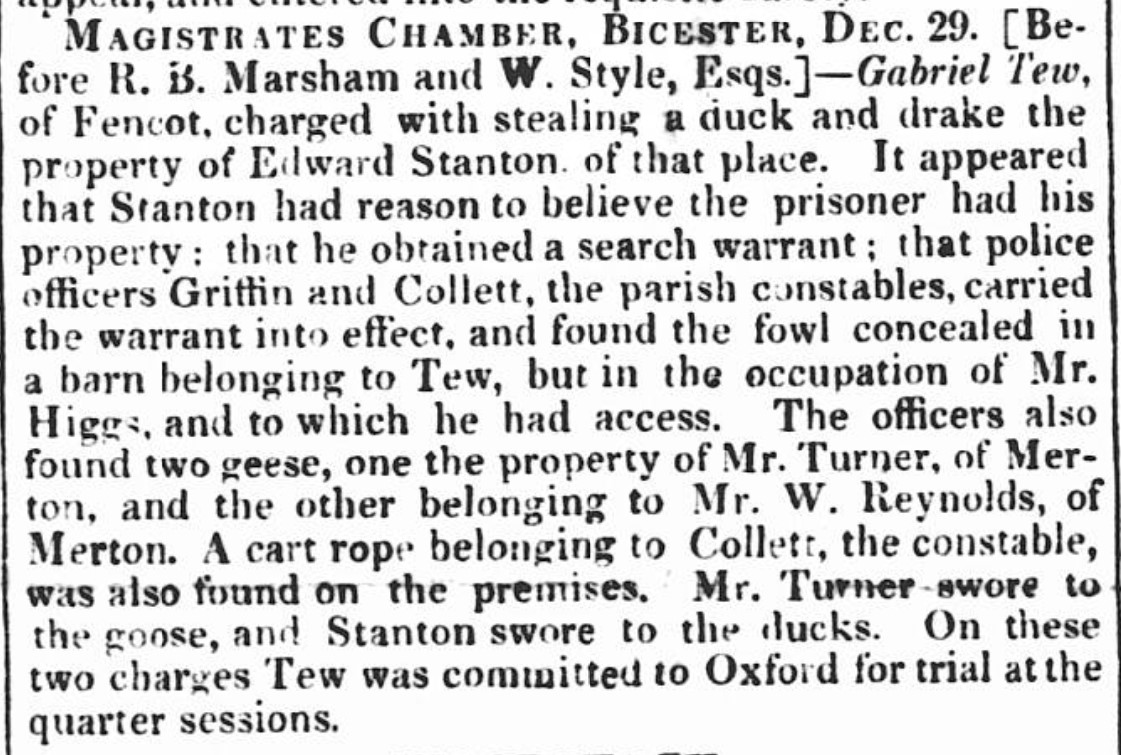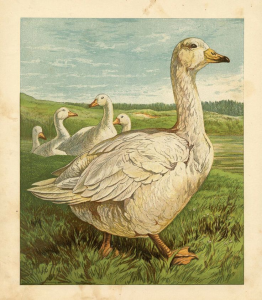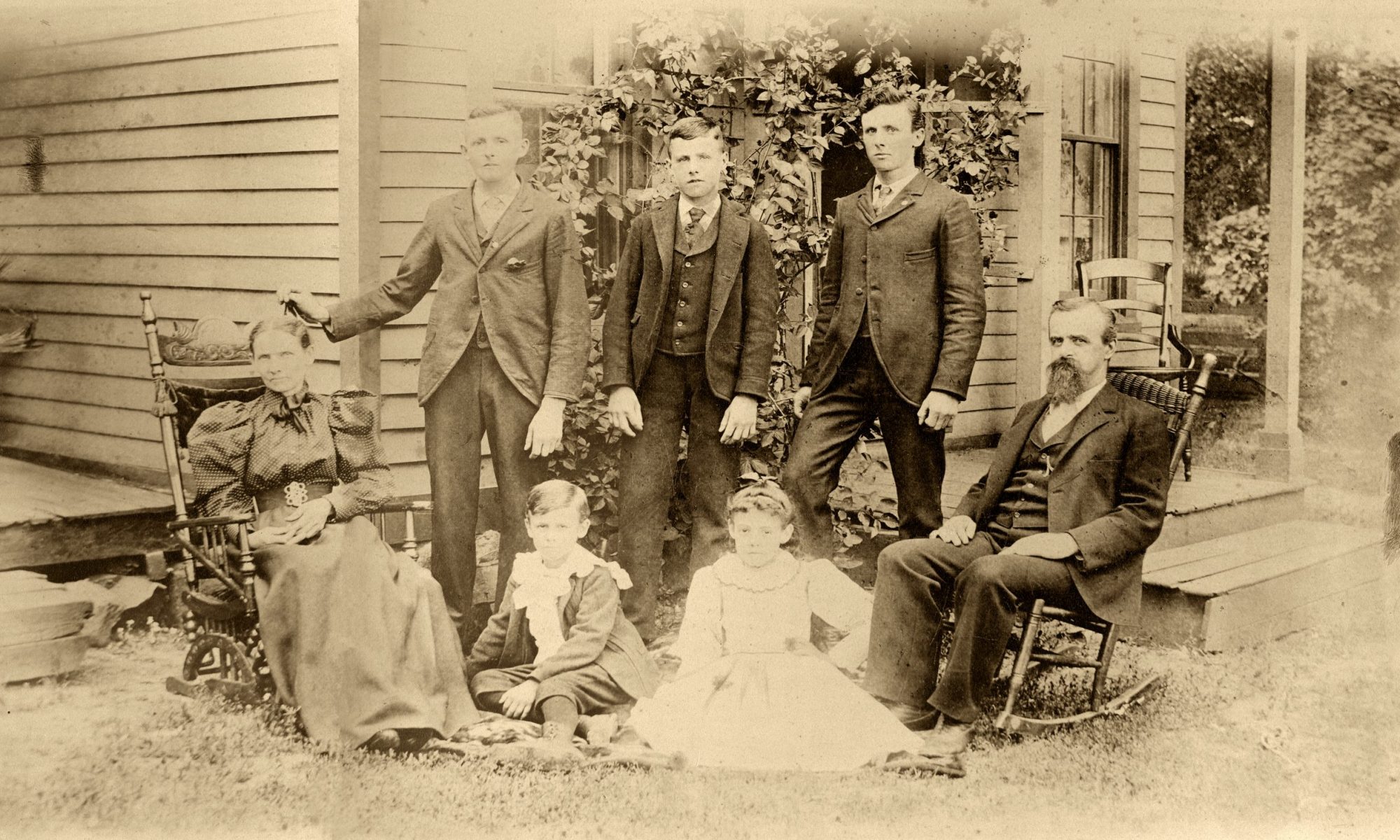
Transcription
MAGISTRATES CHAMBER, BICESTER, DEC. 29 [1846]. [Before R. B. Marsham and W. Style, Esqs.] -- Gabriel Tew, of Fencot, charged with stealing a duck and drake the property of Edward Stanton of that place. It appeared that Stanton had reason to believe the prisoner had his property; that he obtained a search warrant; that police officers Griffin and Collett, the parish constables, carried the warrant into effect, and found the fowl concealed in a barn belonging to Tew, but in the occupation of Mr. Higgs, and to which he had access. The officers also found two geese, one the property of Mr. Turner, of Merton, and the other belonging to Mr. W. Reynolds, of Merton. A cart rope belonging to Collett, the constable, was also found on the premises. Mr. Turner swore to the goose, and Stanton swore to the ducks. On these two charges Tew was committed to Oxford for trial at the quarter sessions.
Notes

A goose was worth between four and six shillings at the time of this occurrence. According to British National Archives, that would be £15-25 GBP in today’s money or $20-30 USD. That would be a day’s wages for a skilled tradesman.
William Reynolds, for whatever reason, did not press charges against Mr. Tew. When the trial came, Mr. Tew only charged in the theft of one goose, that owned by Mr. Tanner, and not in the theft of the ducks belonging to Mr. Stanton (see below, “The Trial,” for follow-up). A jury found him not guilty due to lack of evidence.
Mr. W. Reynolds of Merton was my 4th great-grandfather, William Reynolds (1790–1860). He was the tenant of Merton Grounds Farm near Merton, Oxfordshire, at the time of the theft of his goose. Merton Grounds was a dairy farm, but William seems to have had other livestock. He was a widower, having lost his wife Elizabeth a year before. Three of his children still lived with him at this time: Elizabeth, 21; Edward, 18; and my third great-grandfather, Thomas, 16.
The Trial
The following is a transcript of the court proceedings against Mr. Tew. This appeared in the Oxford Chronicle on 9 Jan 1847:
County Epiphany Sessions. These sessions commenced on Monday, before J. W. Henley, Esq. and a bench of magistrates, when the county business was transacted... On Tuesday the trial of prisoners commenced. The grand jury having been sworn, and the royal proclamation against vice and immorality having been read, the chairman, in a few words, addressed the grand jury, by saying that he was sorry that he could not congratulate them (as at the last sessions) on the state of the calendar. The number of prisoners was unusually large. This might probably arise in some measure from the late severity of the weather, which might have led to the commission of smaller offences... There were 40 prisoners in the calendar... Gabriel Tew, 47, was charged with stealing one goose, the property of Wm. Tanner, of the parish of Merton. Mr. Pigott defended the prisoner. The first witness was William Tanner, who deposed that he lived at Merton, in this county. Last December had twelve geese; saw them on Friday, Dec. 18; missed two on the Saturday. They were old ones; worth 5s. or 6s. each. Saw one about a fortnight after in the possession of Griffin, the policeman. It was dead; that was the brown one. Saw the white one in possession of Jackson; it was picked. In reply to Mr. Piggot. -- Both were picked except the head and wings. Knew it by the white feathers and brown feathers round the head. Could not swear to the white one. Anne Edwards, servant to William Tanner. -- Had the care of his poultry. He had twelve geese on the 18th of December. She put them into the house without locking them up. Next morning missed two. Saw a brown goose at Mr. Griffin's on the 28th of Dec. She knew it by its head. Had looked after them two years. In reply to Mr. Pigott. -- She did not miss them till told they were gone. The one she saw on the 28th was picked; it had a brown and white head. Other people in the parish kept geese. Fracis Griffin, policeman, Bicester. -- He produced the head and wings of a goose. He found the goose belonging to them in a barn of Mr. Higgs, of Fencott, in a bag. It is the prisoner's barn, and Mr. Higgs rents it. Prisoner lives in a house near the barn. Searched the prisoner's house first; found nothing. Then, by leave of Mr. Higg's daughter, searched the barn. It was unlocked; no one was at work in it. There was some wheat straw in the barn. There were two doors to the barn, neither of which open into the street. Prisoner was present when he searched, and in turning out the goose, witness said, this must be Mr. Tanner's goose, and prisoner said, yes. Had told prisoner what he came to search his house for. Shewed the goose to Mr. Tanner the same day, the 28th of December. Mr. Tanner swore to the head. In reply to Mr. Pigott. -- Did not know that geese were often brown. Ganders were generally white. Did not often feed the poultry. Mr. Reynolds lived at Merton grounds. He had lost a white goose, and he swore the white one was his. Witness was sure it was his. Francis Griffin, in reply to Mr. Pigott, said, Higgs rented his barn and house of prisoner; it was his own property. He allowed him to search his house; he said, "search and welcome." When the goose was found he (witness) said, this is Tanner's goose; prisoner said, yes. He (witness) had not stolen the goose (laughter). Anne Edwards said, the goose's head was her master's. Richard Collett, constable of Fencott, was with Griffin, when two geese were found in a bag, in Mr. Higg's barn. John Higgs. -- Lives at Fencott; rented a barn there of Tew, and occupied it. The prisoner had the privilege to go in the barn at any time. If he chose to lock him out he could. Made no bargain that he should have a right to go into it, when he let it to witness. He could go into it when unlocked, the same as anybody else might. Sometimes put corn into the barn, then locked it by night only. He had some wood in the barn. In reply to Mr. Pigott: -- Had a son and daughter grown up. Went through a stable into the barn. Mr. Pigott submitted there was no evidence. The Chairman said he thought it very slight. Mr. Pigott then said he was willing the case should [go to?] the jury as it was. The Chairman, then said, the evidence was indeed slight, and the jury immediately returned a verdict of not guilty.
Source
- Oxford Chronicle and Reading Gazette | Saturday 02 January 1847 | British Newspaper Archive, P3
- “The Goose” from Harrison Weir’s Pictures of Animals, 1877 (Found on Pinterest)
- Oxford Chronicle and Reading Gazette | Saturday 09 January 1847 | British Newspaper Archive, P4
- Currency converter: 1270–2017 (nationalarchives.gov.uk)
